Current articles on bioeconomy-related topics
-
Paludiculture as a beacon of hope for the climate - 28/06/2022

Peatlands store more carbon dioxide than any other ecosystem in the world. However, when drained, they become a climate-damaging source of CO2. The management of wet peatlands reveals exciting solutions, with market potential in the areas of local heating, insulation, packaging and even peat substitution.
-
Renaturalised peatlands as carbon dioxide stores - 14/06/2022
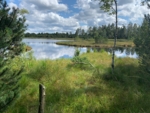
All intact peatlands on our planet store twice the amount of CO2 as all forests. Peatlands are indispensable for preventing and mitigating the effects of climate change. The only problem is that 95 percent of Germany's peatlands have been drained, and thus release around 7 percent of Germany’s total CO2 emissions into the atmosphere. Rewetting is therefore imperative for the climate, the environment and biodiversity – and economically…
-
Lentil cultivation in a producers’ association - EIP-AGRI Rhizo-Linse project - 23/05/2022
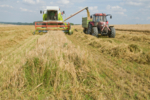
Complicated cultivation, fluctuating yields and complex cleaning: Leisa – as lentils are called in Swabian – are demanding. So to produce lentils economically, 130 farmers in the Swabian Alb have joined forces and set up the organic producers’ association Alb-Leisa. Their lentil harvests are processed and marketed by a company called Lauteracher Alb-Feld-Früchte.
-
Mini-factories for producing bioplastics - 05/05/2022
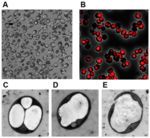
Using living cells as mini-factories to produce plastic from nothing more than water, sunlight and carbon dioxide; plastic that is also 100 percent degradable – it sounds far-fetched but it actually works: researchers at the University of Tübingen have genetically engineered cyanobacteria so that they fill their cells to the brim with polyhydroxybutyrate. The researchers are now turning the idea into reality with the development of pilot plants.
-
Lentil cleaning - EIP-AGRI Rhizo-Linse project - 26/04/2022
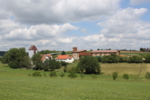
The Altdorf mill, just under 7 km south of the city of Böblingen, has operated lentil cleaning facilities since 2019, the year that the Sessler mill in Renningen, 20 km further north, ceased all operations including lentil cleaning. After receiving a number of enquiries from farmers and local mills, brothers Karl and Jörg Ruthardt took a chance and launched a lentil cleaning operation in addition to their mill and farm shop business.
-
ProteinDistillery GmbH - 20/04/2022
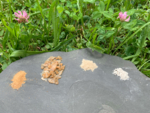
Yeast has been part of the human diet for thousands of years. ProteinDistillery GmbH now wants to revolutionise the environmentally friendly protein suppliers market by introducing brewer's yeast and secure the protein supply of the future.
-
pre-start-up company Wheyfinery - 13/04/2022
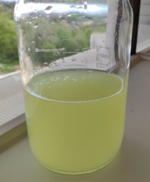
There is not much you can do with acid whey, which is why several million litres of it are disposed of every year. This is both costly and not sustainable. However, researchers at Tübingen University have shown: acid whey can be used to produce precursors for biofuels, fine chemicals and antimicrobial livestock feed additives. They have set up the pre-start-up company Wheyfinery in an endeavour to make their scalable biorefinery concept…
-
Filament winding technology for sustainable construction - 06/04/2022
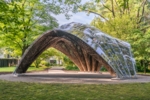
One of the greatest challenges in the construction industry is the transition to more environmentally friendly and resource-saving buildings. Researchers at the University of Stuttgart are combining state-of-the-art robotic filament winding technologies with ancient local crops to produce stable and sustainable lightweight structures from flax fibres.








